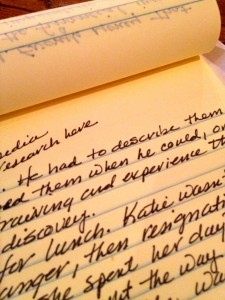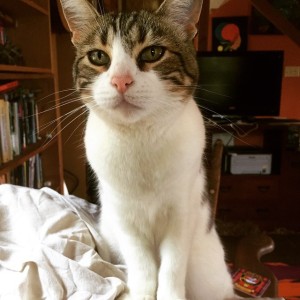I’ve been reading Donald Maass’s excellent, excellent book Writing the Breakout Novel (which is, unfortunately, not available on the Kindle so I actually had to do the archaic order and wait for a hardcopy thing) and it’s at a perfect time for me since I’m beginning the second pass at the current project.

I find it handy to do this sort of pass. Last time, when revising Phat Fairy, I used a list from Holly Lisle and went through scene by scene, checking for criteria like what got accomplished, were there any loose ends, what characters appeared, was there a sensory moment, was there character development for at least one character. I did something similar with The Moon’s Accomplice, which was the first novel that I completed. There is much to be said for making your revision process efficient and mechanical. While moments of inspiration are useful, it’s the elbow grease put into the scenes at this point that pays off.
At the same time, I think it would be easy to get overly concerned with this and make it a barrier for writers who have a hard time finishing. And so I develop my criteria that each scene will be judged by, my checklist of necessaries, and then I go through, scene by scene. More post-its may get scattered in the wake of that pass for knotty bits, hard little problems like “Why is Zappo showing up now?” or “Exactly how do we find out Crystal’s father’s past?” that I want to think about, and those will get taken care of in a tertiary pass. My strategy with revision is to pick one set of criteria each pass and stick to it, without adding more to do by reading other pieces on approaches to revision and continuing to change your strategy, putting yourself in the position of going back to earlier work.
Pick a single lens for each pass you make through the manuscript and stick with it. One set of criteria or even single thing that you’re looking at. This will be more labor-intensive (perhaps dauntingly so) but more effective than performing the writerly equivalent of multi-tasking.
I know this is very counter to the write a draft and get it out philosophy, but that’s how I work. What about other people, which camp do you fall in? What’s the most important thing to you when doing a revision?










3 Responses
Sounds like a good book to pick up when I have a chance. And your comments are food for thought.